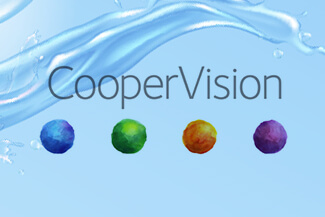The global prevalence of myopia is expected to rise from 2 billion people in 2010 to nearly 5 billion people in 2050.
Myopia occurs when the eye elongates, causing light rays to focus in front of the light-sensitive retina rather than directly on it.
Despite the fact that glasses and regular contact lenses can correct a person’s vision, they do not treat or slow the progression of myopia.
Myopia
Myopia causes blurry distance vision, requiring eyeglasses and/or contact lenses to provide clear sight required for daily life.
During childhood, when the eyes are growing quickly, myopia, also known as short-sightedness, develops. Myopia usually arises due to the child’s genetics and can develop slowly or quickly, particularly between the ages of 8 and 18.
Today’s focus on screens and digital devices seems to be causing a significant rise in the number of children with myopia and the worsening of the myopia itself, known as myopia progression.
What is myopia progression?
If a child’s myopia worsens, they are more likely to develop sight-threatening eye issues such as cataracts, macular degeneration, glaucoma and retinal detachment.
Myopia progression occurs when a child becomes more nearsighted and requires a new, higher prescription.
However, if your child’s prescription increases each year or so, they have a serious eye condition – myopia progression.
Myopia progression occurs when the eye grows too fast causing an increase in the myopia prescription required.
When myopia increases rapidly, within a year or less, eye doctors recommend that it be evaluated and corrected.
These conditions can cause irreparable vision loss or perhaps blindness.
If your child has myopia, contact an eye doctor near you to discuss myopia management options.
SEE RELATED: What Is Myopia Management?
What is myopia management?
Myopia management is a treatment program recommended by eye doctors to stop or slow the progression of myopia.
An optometrist may choose to use:
In this article, we are going to focus on a specific multifocal contact lens – MiSight 1 day daily disposables.
MiSight 1 day lenses
MiSight soft contact lenses are meant to correct nearsightedness and slow the progression of myopia in children. These lenses are manufactured by CooperVision and are based on a patented multifocal design and are daily disposable lenses.
When the MiSight contact lens is placed on the eye, one part of the lens corrects the refractive error to improve nearsighted eyes’ distance vision, just like a regular contact lens.
In addition, the lens’ concentric peripheral rings focus a portion of the light in front of the retina. This is thought to lower the stimulus that causes myopia to progress.
Published research
A three-year clinical study was conducted to test the safety and efficacy of the lenses.
In 2019, the Optometry and Vision Science published the study findings which indicated that the use of MiSight 1 day was more effective in slowing myopia progression than a standard single-vision, one-day lens contact lens.
The results showed;
- 59% reduction in myopia progression
- 52% reduction in growth of the eye
When compared to the control group, the three-year results showed that MiSight 1 day was highly received by children and had no effect on their daily activities such as schoolwork, reading, playing outside, and computer use.
Other findings
Besides the reduction in myopia progression, other findings of this research revealed that:
- Children in both groups preferred contact lenses to glasses.
- Parents stated that their children could generally manage their contact lens wear on their own.
- Less than half of the parents were comfortable with their child using contact lenses, but this increased to 79% after just one month and remained high through the three-year mark.
- After three years of wearing MiSight 1 day contact lenses, nearly 9 out of 10 parents said their children were “very delighted” with the entire contact lens experience.
LEARN MORE: Guide to Myopia Management
Schedule an appointment with an eye doctor near you to find out more about MiSight Day lenses for your child.
This research showed that MiSight contact lenses could be a successful option to managing a child’s myopia.
Managing myopia is essential for the near and long-term health and well-being of their children.









